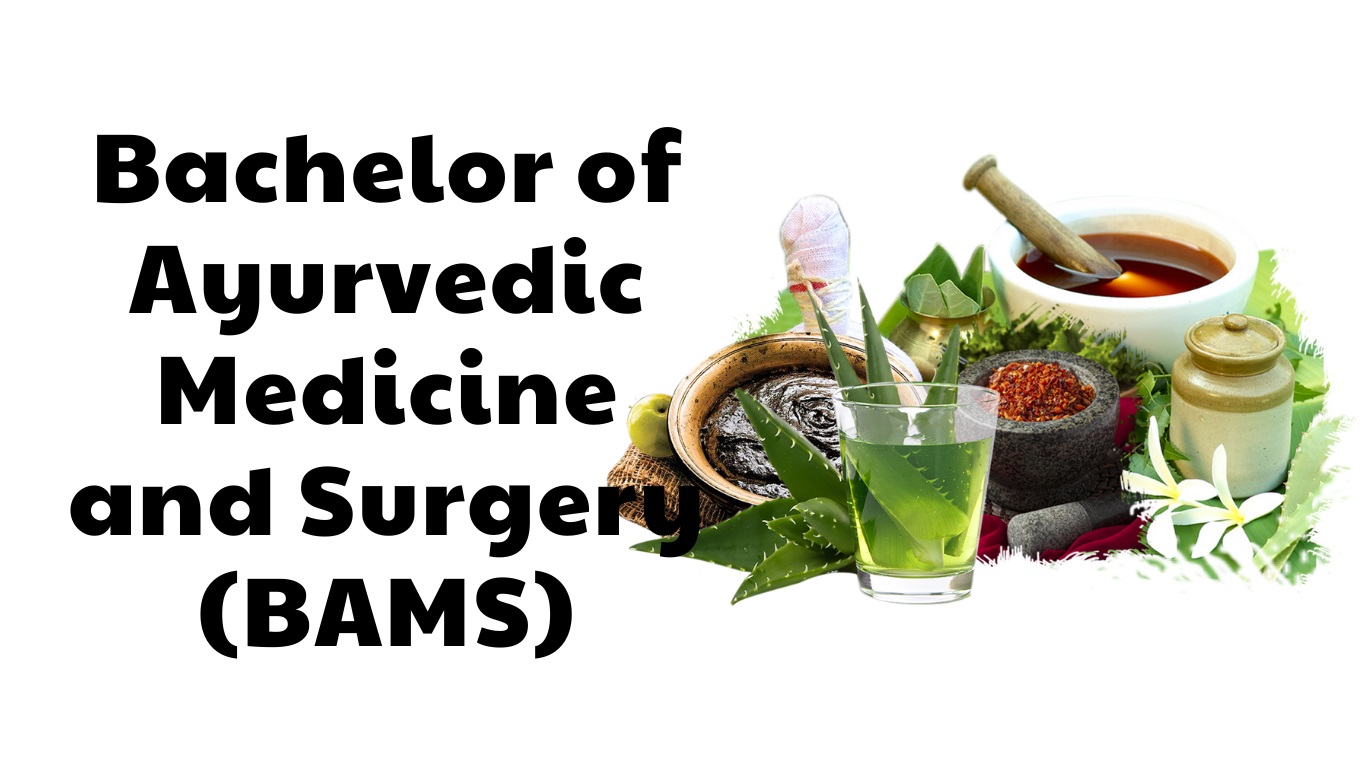BAMS
Introduction
Ayurveda has been a major part of treatment and care in India, for thousands of years. Bachelor of Ayurvedic Medicine and surgery, or BAMS is a course that requires five years and six months to complete and teaches the students everything there is to know about Ayurveda and its application in the curing of various diseases. For 4.5 years, the aspirants are taught about nursing, while one year is generally kept for internship. In current times, especially with the advent of the coronavirus, the medical industry has grabbed even more attention than before, and along with came a higher focus on Ayurveda. Thus, Ayurveda is now a popular choice for students as a career option, and once they graduate, they are given the title of ‘Vaidyar’. In this article, an attempt will be made to explore the course details, admission, fee structure, syllabus, and the other information needed by students, to pursue a course in Ayurveda.
Course Details
It is an undergraduate program, designed for students, who want to build a career around Ayurveda and its usage in the cure, treatment, and analysis of health and its ailments. The course of BAMS is divided into 3 sections, each section is taught for 1.5 years, and the sections are:
a. The first year - The syllabus contains the history of Ayurveda, anatomy, physiology, and Sanskrit. Each paper has a total of 100 marks, and the students have to score a minimum of 50% on tota, to pass.
b. The second year- The syllabus contains pharmacology and toxicology, more specifically - Rog Nidan, Ras Shastra, Bhaishajaiya Kalpana, Drvavya Gunn, and Charak Samhita Purvad.
c. The third year - The syllabus entails Roga Nidana, Swasthavritta, Prasuti Tantra Evum Stree Roga, Kaumarbhritya Parichaya, and Charak Samhita.
Admission Process and Eligibility Criteria
In order to get admitted and graduate from a reputed Pharmacy college of BAMS, the aspirants must fulfill the following criteria:
- The aspirants should have passed their class 12 board examinations with the science stream, with a minimum aggregate of 45-50 per cent, from a recognized board of examination in India. It is also necessary that their course has the subject Biology, which is extremely important in every medical platform.
- The students have to appear for any of the entrance examinations. Some of the colleges accept the score of the national level entrance examination NEET (National Eligibility Cum Entrance Test), while other colleges also accept scores from state-level entrance examinations like GCET (Goa Common Entrance Test) and OJEE (Odisha Joint Entrance Examination), while some universities hold their own entrance examination like IPU CET (Indraprastha University Common Entrance Examination).
- Candidates for the program are selected by considering both the marks scored in the 12th board examination and the marks scored in the entrance examination.
- The colleges can also choose a personal interview round, in order to shortlist the students.

